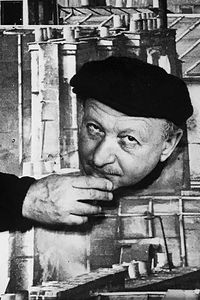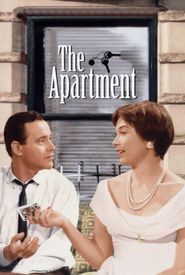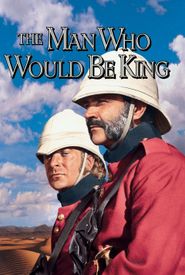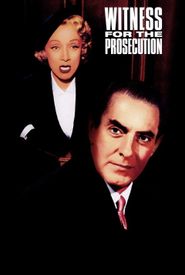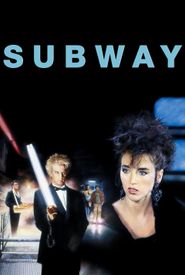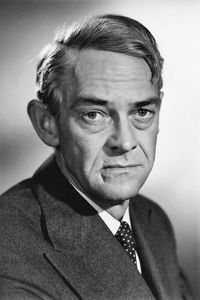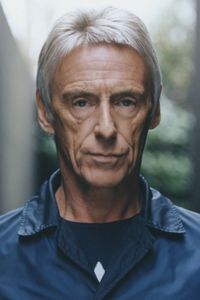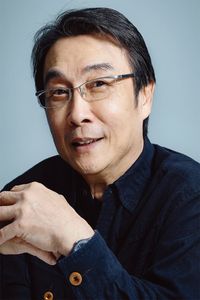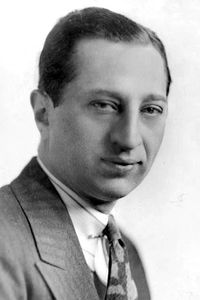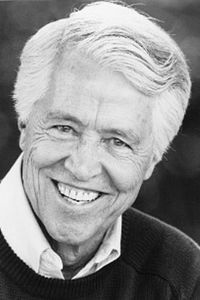Alexandre Trauner, a Hungarian-born artist, embarked on a remarkable journey in 1929, abandoning his homeland to escape the oppressive and discriminatory Horthy regime, notorious for its anti-Semitic policies and practices. As a young artist, Trauner had initially set out to pursue a career in painting, but fate had other plans.
Trauner's artistic style was significantly influenced by the avant-garde movements of cubism and impressionism, which he was exposed to during his time in Paris, a city renowned for its intellectual freedom and creative expression.
As he explored and developed his artistic talents, Trauner demonstrated a remarkable ability to diversify his skills, venturing into various creative fields such as architecture, fashion design, and tapestry, a testament to his boundless imagination and versatility.
However, it was ultimately motion picture production design that became the primary focus of his creative endeavors, a decision that would allow him to combine his artistic vision with his passion for storytelling and visual narrative.
The trajectory of Trauner's career underwent a significant transformation by the mid-1930s, as he emerged as a preeminent production designer, forging a creative synergy with the esteemed director Marcel Carné, the celebrated writer Jacques Prévert, and the accomplished composers Joseph Kosma and Maurice Jaubert.
Together, they collaborated on a string of influential French films that showcased Trauner's exceptional skill in crafting meticulously detailed sets. These cinematic backdrops transported audiences to a plethora of captivating locations, including the picturesque Parisian boulevards and canals, the fog-shrouded port city of Le Havre, and the windswept Brittany coastline, each one a testament to Trauner's unparalleled ability to evoke a sense of place and atmosphere.
The post-war era marked a significant turning point in the career of Trauner, as he rapidly gained a reputation that transcended national borders, making him a highly coveted designer for Hollywood directors with international projects. Among his most notable collaborations was his partnership with the acclaimed director Billy Wilder, which led to a series of assignments that took him to the distant and exotic Congo for Fred Zinnemann's critically acclaimed film, The Nun's Story.
Trauner's association with Wilder also resulted in his involvement in some of the director's most iconic and enduring films, including the groundbreaking romantic comedy, The Apartment, as well as the clever and witty satire, One, Two, Three.
Noted production designer Paul Trauner's impressive portfolio was characterized by his remarkable versatility, as exemplified by his work on a diverse range of projects.
One notable example of his skill was his creation of the atmospheric sets for the critically acclaimed film The Night of the Generals, which transported audiences to a bygone era with its meticulous attention to detail.
In addition to his work on The Night of the Generals, Trauner also demonstrated his expertise in designing opulent and ornate sets, as seen in his contributions to the visually stunning film The Private Life of Sherlock Holmes.
Furthermore, Trauner's ability to envision and bring to life exotic and fantastical worlds was showcased in his work on the film The Man Who Would Be King, which transported viewers to the mystical land of Kafiristan with its lush and vibrant settings.
Through his work on these and other projects, Trauner established himself as a master of his craft, renowned for his ability to seamlessly blend artistry and technical skill to create visually stunning and immersive cinematic experiences.
As Trauner's illustrious career neared its eventual conclusion, he made the deliberate decision to return to his native France, where he proceeded to craft a significantly darker and more ominous portrayal of the City of Light in the film Subway. In a remarkable display of attention to detail, Trauner meticulously recreated an exact replica of the iconic Parisian jazz club, the Blue Note, as well as its New York counterpart, Birdland, for the critically acclaimed jazz film 'Round Midnight.
The remarkable career of Alexandre Trauner, a renowned cinematographer who left an indelible mark on the world of film, is a testament to his unwavering dedication to innovation and creativity.
